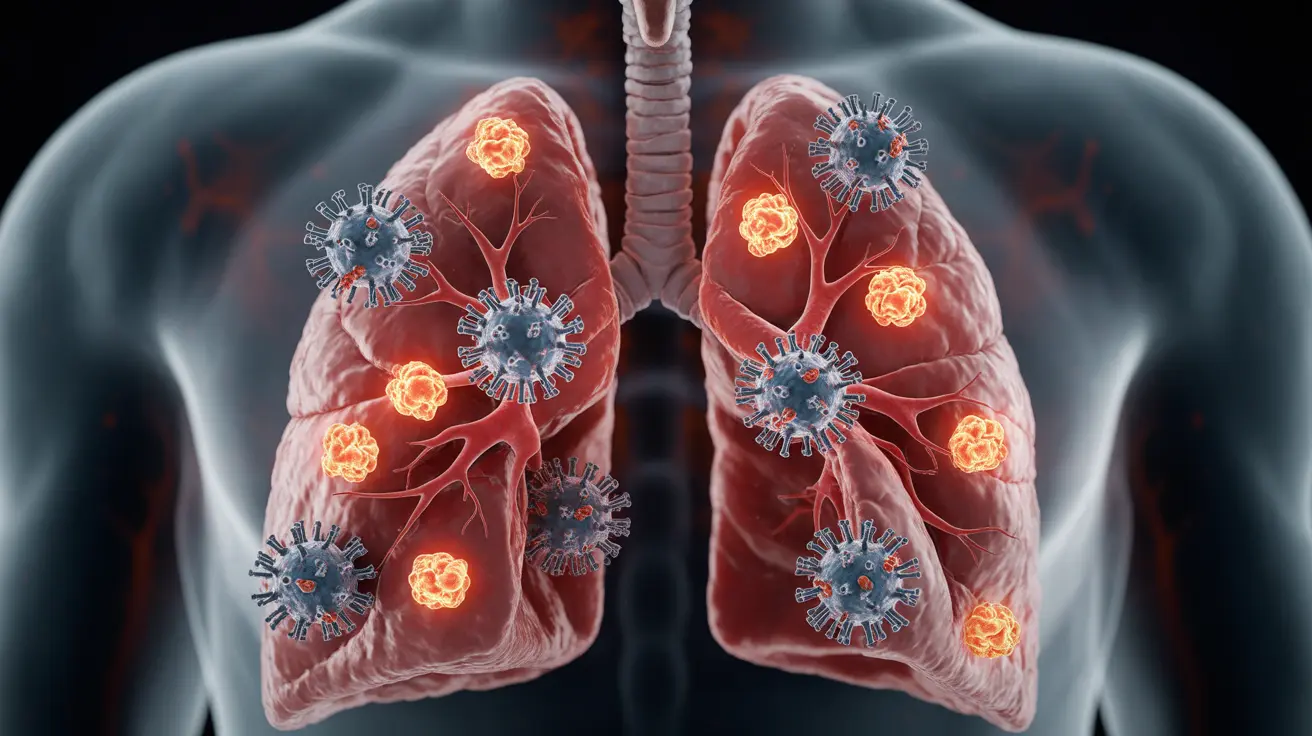While many people view the flu as a common seasonal illness, it's crucial to understand that influenza can indeed be life-threatening under certain circumstances. Each year, thousands of people face severe complications from the flu, and some cases can be fatal. Understanding the risks and warning signs can help you protect yourself and your loved ones from serious flu-related complications.
In this comprehensive guide, we'll explore the potentially dangerous nature of influenza, identify risk factors for severe complications, and discuss essential preventive measures that can save lives.
How Influenza Becomes Life-Threatening
The flu virus can lead to severe complications through several mechanisms. Initially, the virus attacks the respiratory system, potentially causing inflammation and damage to the airways and lungs. This damage can pave the way for secondary bacterial infections and other serious complications.
Common Severe Complications
Several serious complications can arise from influenza infection:
- Bacterial pneumonia
- Acute respiratory distress syndrome (ARDS)
- Myocarditis (heart inflammation)
- Multi-organ failure
- Sepsis
The Connection Between Flu and Pneumonia
One of the most dangerous complications of influenza is pneumonia, which can develop when the flu virus weakens the respiratory system's defenses. This allows bacteria to invade and multiply in the lungs, leading to a potentially life-threatening infection that requires immediate medical attention.
High-Risk Groups for Severe Flu Complications
Certain populations are particularly vulnerable to developing serious flu complications:
- Adults aged 65 and older
- Young children under 5, especially those under 2
- Pregnant women
- People with chronic medical conditions
- Individuals with weakened immune systems
- People with obesity (BMI ≥40)
Prevention and Protection Strategies
Taking proactive steps to prevent severe flu complications is crucial:
Vaccination
Annual flu vaccination remains the most effective preventive measure against severe influenza. The vaccine significantly reduces the risk of hospitalization and death, even if it doesn't completely prevent infection.
Additional Preventive Measures
- Regular hand washing
- Avoiding close contact with sick individuals
- Maintaining a healthy lifestyle
- Getting adequate rest and proper nutrition
- Seeking early medical attention when symptoms appear
Warning Signs Requiring Immediate Medical Attention
Certain symptoms indicate a medical emergency:
- Difficulty breathing or shortness of breath
- Chest pain or severe chest pressure
- Sudden dizziness or confusion
- Severe or persistent vomiting
- Flu-like symptoms that improve but then return with fever and worse cough
Frequently Asked Questions
- Can the flu be fatal, and what are the most common causes of flu-related deaths?
Yes, the flu can be fatal. The most common causes of flu-related deaths include pneumonia, respiratory failure, multi-organ failure, and worsening of existing chronic conditions. Elderly individuals and those with compromised immune systems are at highest risk.
- How does the flu lead to pneumonia, and what are the symptoms I should watch out for?
The flu can lead to pneumonia by damaging respiratory tissues and weakening immune defenses. Watch for symptoms like persistent cough with thick mucus, difficulty breathing, chest pain, high fever, and extreme fatigue.
- What are the risk factors that increase the likelihood of severe flu complications or death?
Major risk factors include age (very young or elderly), pregnancy, chronic medical conditions, weakened immune system, obesity, and living in nursing homes or long-term care facilities.
- How effective is the flu vaccine in preventing severe illness and death from influenza?
The flu vaccine significantly reduces the risk of severe complications and death, even when it doesn't completely prevent infection. Studies show it can reduce the risk of flu-related hospitalization by 40-60% in the general population.
- What symptoms indicate that I should seek immediate medical attention if I have the flu?
Seek immediate medical attention for difficulty breathing, persistent chest pain, sudden dizziness, confusion, severe vomiting, and symptoms that improve but then return with worse severity.




